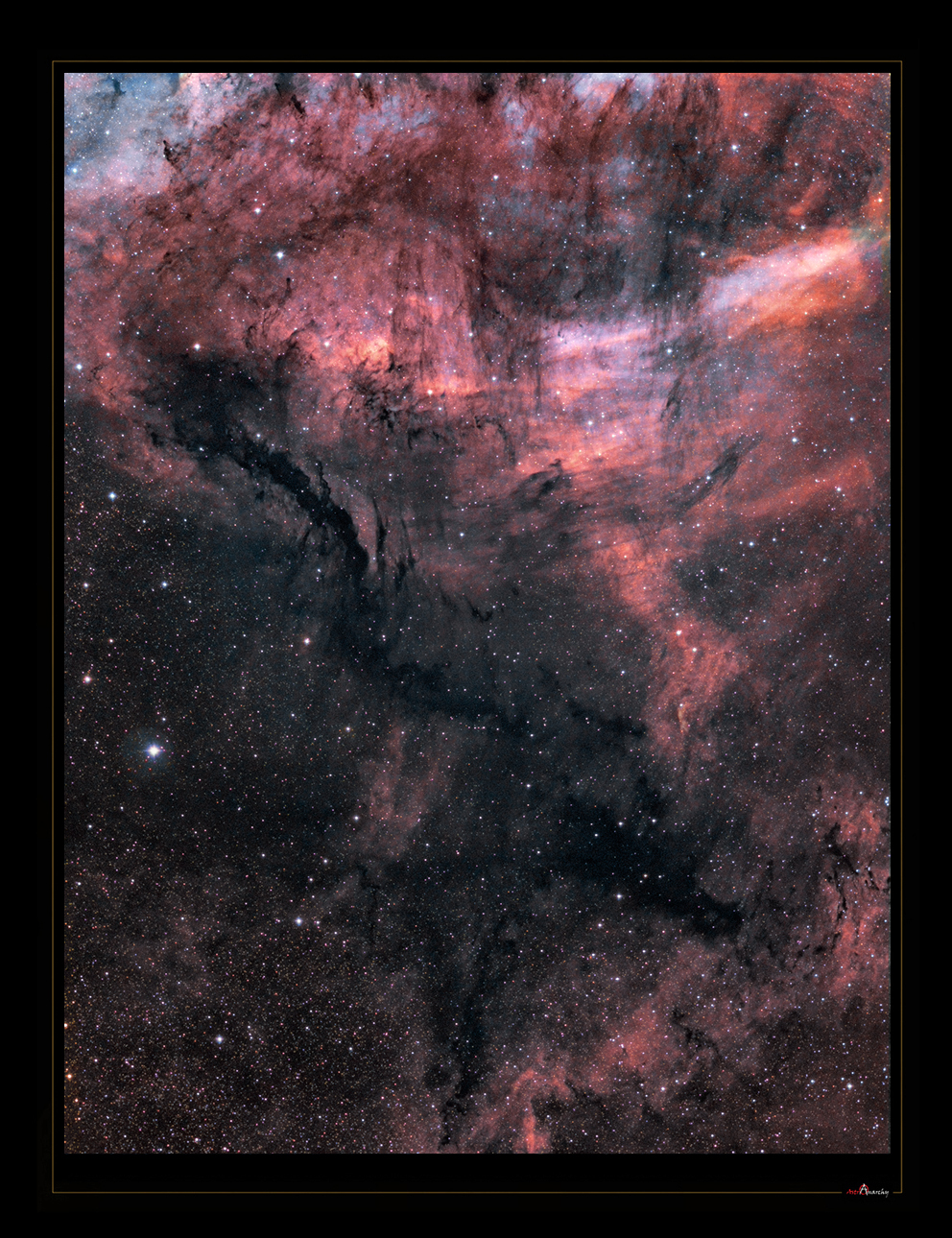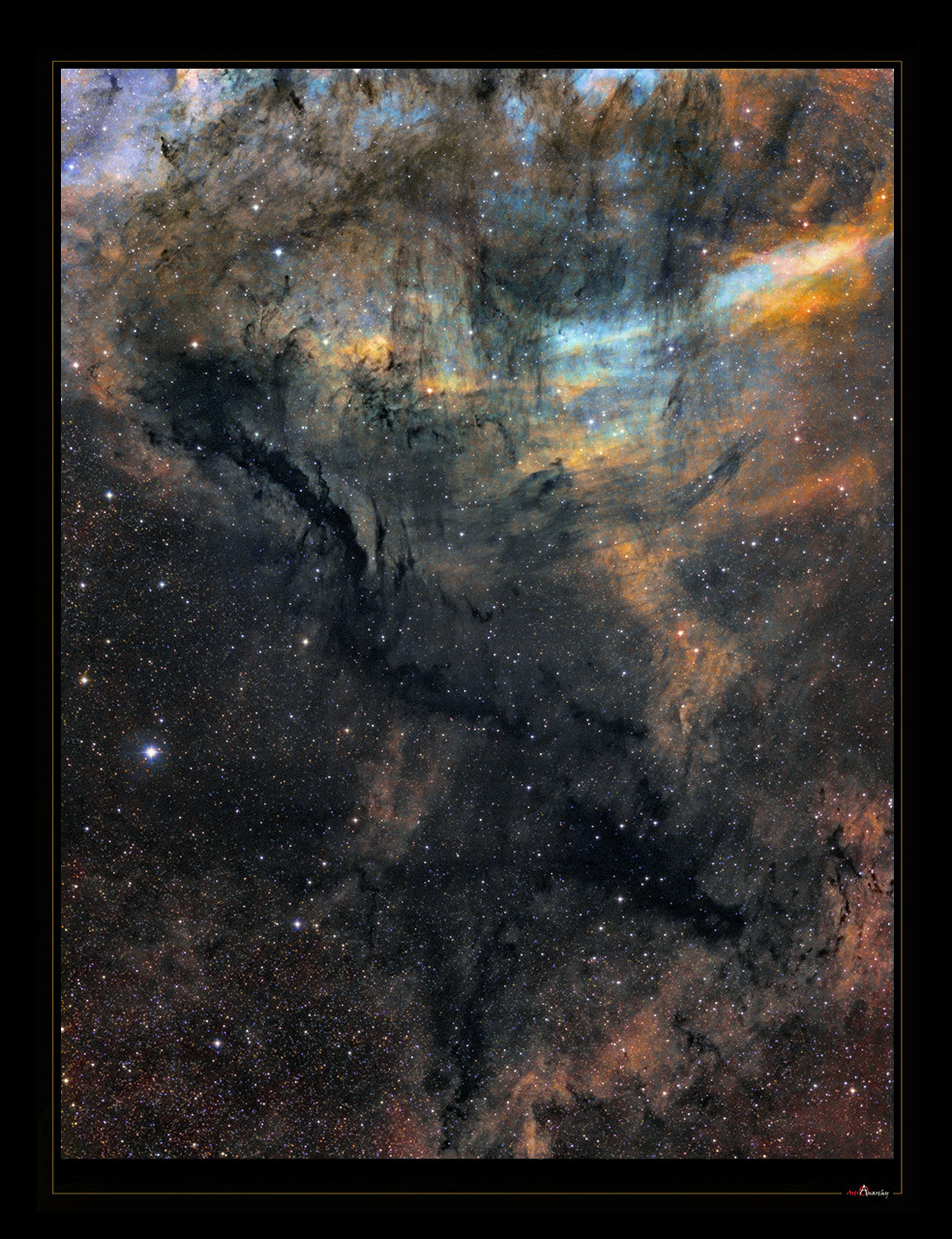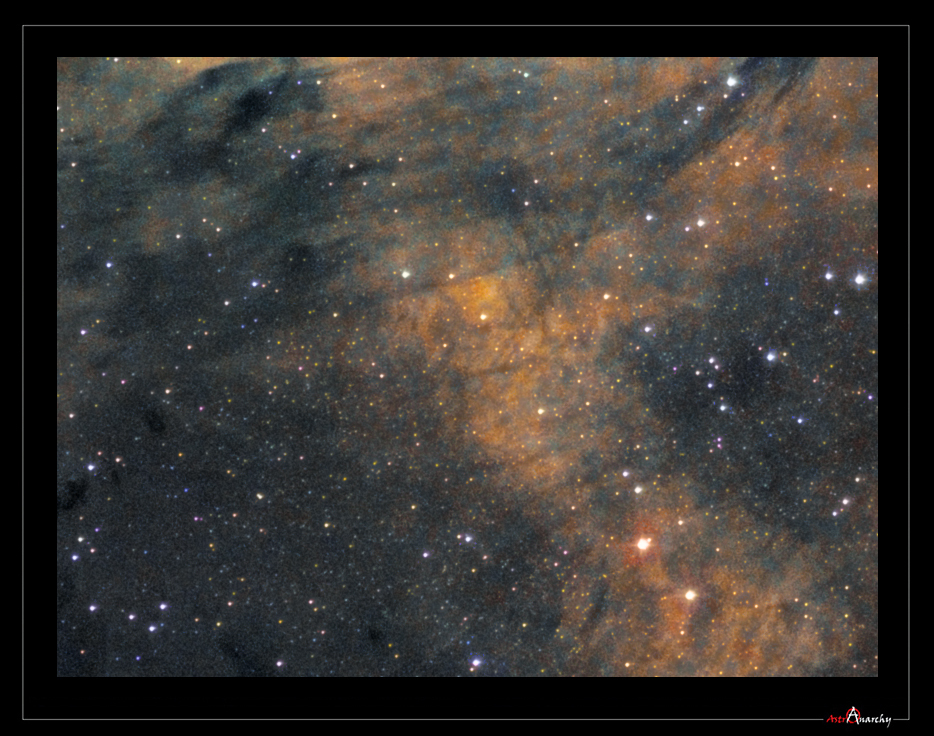
Image is in Natural color palette from the emission of ionized elements,
R=Hydrogen + Sulfur, G=Oxygen and B=Oxygen + Hydrogen.
This beautiful area is just bellow the North America and Pelican Nebulae. The bright area at upper middle Right, is known as IC 5068.
I selected this as a target, since there is a beautiful dark dust line blocking light at front of the ionization zone and the area is not too commonly imaged. You can see the image in just Ha-light and an image about the relative location in my previous blog post.
Area of interest, just bellow NGC7000, can be seen in this image as a gray scale rectangle.
R=Sulfur, G=Hydrogen and B=Oxygen.
A 100% crop from the image to show the resolution.
An experimental starless image to show the nebula better.
Technical problems are still driving me nuts... I had to operate nearly everything manually, since my TCF-s focuser and the filter wheel are out of order. Focusing at f2.8 is not an easy task, the critical focus zone is just about 15/1000mm. I had to refocus between the frames, since temperature dropped during the night and I didn't have my temp. compensating focuser operational.
Technical details:
Processing work flow:
Image acquisition, MaxiDL v5.07.
Stacked and calibrated in CCDStack2.
Deconvolution with a CCDStack2 Positive Constraint, 33 iterations,
added in about 50% weight.
Levels, curves and color combine in PS CS3.
Optics, Tokina AT-X 300mm camera lens at f2.8
Camera, QHY9 , a cooled astronomical camera
Guiding, Meade LX200 GPS and the Lodestar guider
Image Scale, ~3,5 arcseconds/pixel
Exposures H-alpha 19x1200s, binned 1x1
O-III 8x1200s, binned 2x2
S-II 6x1200s, binned 2x2
Total exposure time ~12h





0 comments:
Post a Comment